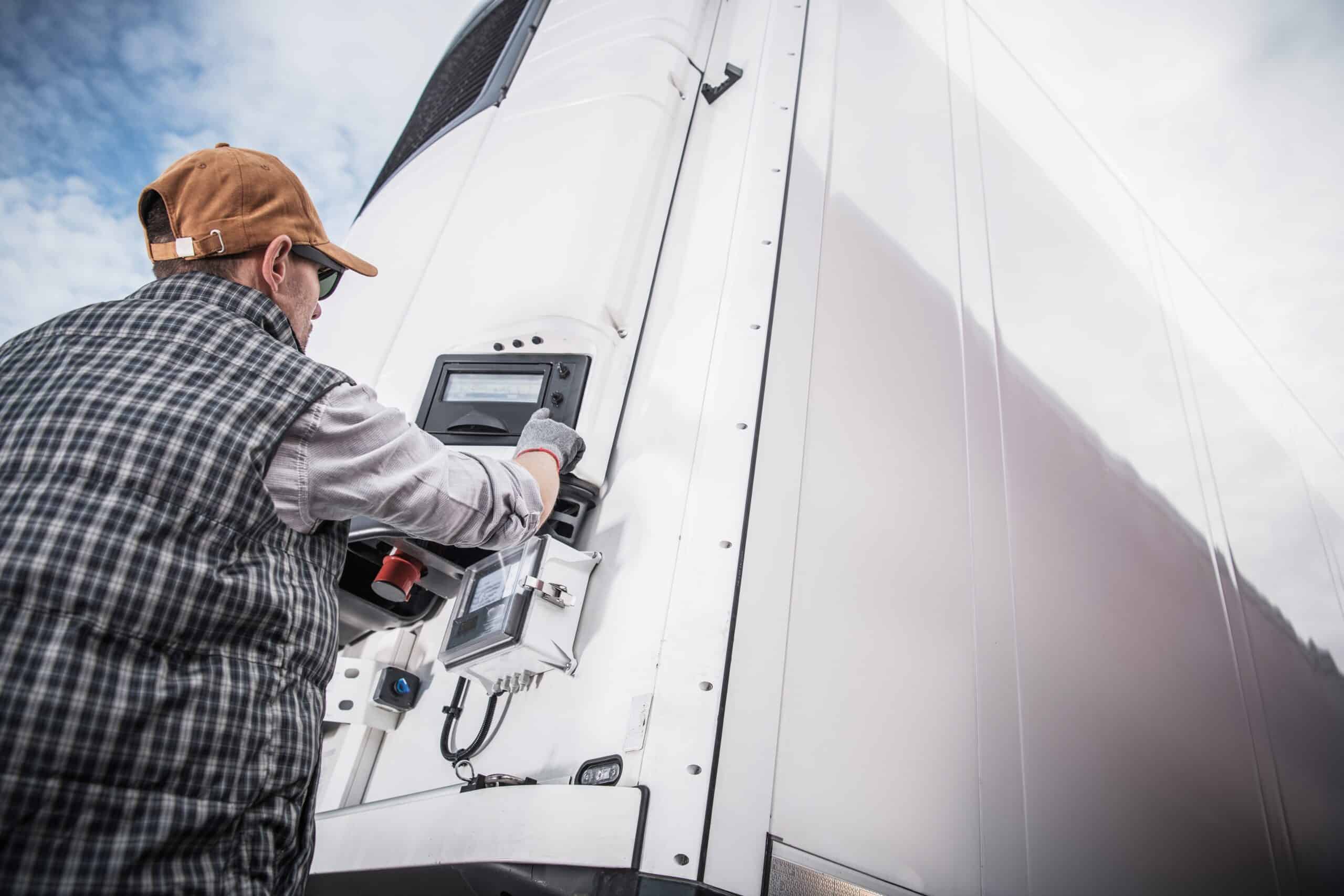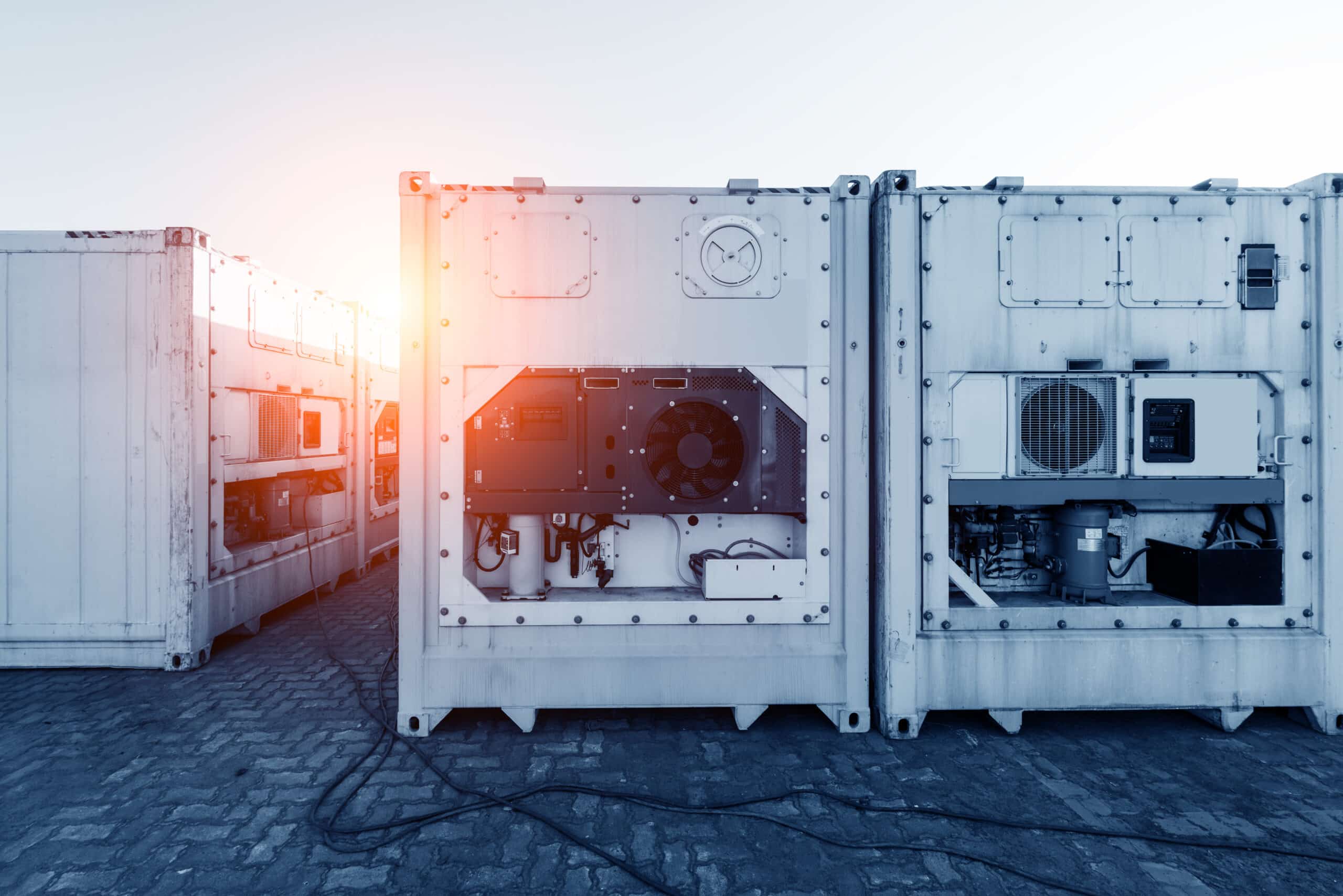Refrigerated transportation – Challenges during heat waves for temperature-controlled road freight
Pharmaceuticals, vaccines, lab samples, food, dairy products or beverages – our lives are significantly dependent on products that have one thing in common: They need to be cooled to be sold and consumed. Refrigerated transportation (also called frigo transportation) is critical in improving global food industry security and supplying a steady quality of nutrition and medical supplies not only to the remotest regions worldwide but on a daily basis in our everyday lives.
Within the last decade (and especially with COVID) the demand for cold-chain-logistics is raising steadily and the global market is projected to grow from $242.39 billion in 2021 to $647.47 billion by 2028, exhibiting an annual growth rate of 15.1% in the forecast period.
What are refrigerated transports?
Refrigerated road freight transportation is in most cases part of a cold-chain, that needs to be maintained to ensure temperature-sensitive products are transported between sites without breaching the temperature threshold. Cold-chain-carriers, often part of a whole cold-chain-fulfillment-unit are specialized in receiving and processing customer orders, cold chain storage, inventory management, order management, packing, shipping, returns, and post-order tracking the sensitive goods.
Refrigerated transportation trucks are, depending on the cold-chain-needs, completed by
- Specialized containers, which are used to store goods during transportation
- Refrigerator units and freezers in warehouses/stores to store before or after delivery.
- Cold rooms at outlets where consumers can buy items from refrigerated displays.

Cold chain logistics management is not as easy as may appear. Companies and carriers, dealing with frozen products have to face many challenges to ensure secure and spoil-free transportation of the products.
Summer heat: Challenges of temperature-controlled transportation
Let’s look at the five main problems cold storage supplier have to be aware of, especially during the summer months.
#1 Heat exposure
Heat exposure to the cooling units for a prolonged time can degrade the goods they hold. Unloading and loading phases are the most delicate part where failure occurs most often. Transport refrigeration containers in most cases are not designed to alter the temperature of their cargo; they are designed to maintain the cargo at the loaded temperature.
#2 Hardware breakdown
Heat exposure can not only be responsible for a lowered product temperature as a direct impact but also for sudden breakdowns in equipment such as malfunctioning circulation or power systems due to overheating. In any case, may it be caused by heat, human error or failing technology equipment, the products are at risk in refrigerated road freight transportation.
#4 Constant and reliable workforce
Lack of qualified drivers due to holidays, fluctuation, driving bans due to summer holidays or strikes – road freight by itself suffers already immensely from the consequences of the labor situation. Cold chain logistics management is unlike usual logistics management. It requires highly trained professionals who are conversant with all the processes and protocols. Moreover, the professionals should also have hands-on experience in operating various cold storage and transportation equipment.
#5 Higher demand
While temperatures raise, the demand for frigo transportation pivots. As aforementioned, these transports as part of a cold chain logistics management are way more complex than normal logistics management. Professionals have to invest heavily in getting the right equipment and fleet. If an own fleet is not efficient enough to maintain, hiring a specialized logistics provider for this purpose also requires a considerable amount of cost and planning. This is one of the biggest challenges ahead for companies dealing in cold storage products.
Improve your refrigerated logistics efficiency using Saloodo!

Cold storage supplier face enormous challenges that other logistics companies never have to deal with – especially during the hotter summer months. Relying on a digital logistics platform can help solving a lot of issues. Within the platform, help from professionals in the field of cold chain logistics and supply chain can be found with short effort. Costs for theses transports are transparent and documents easily at hand 24/7.
To get a frigo road freight offer, Saloodo! supplies a so called Closed Shop option in which only carriers with appropriate solutions are invited to bid. Register easily now on Saloodo.com and optimize your cold storage logistics professionally or contact our Sales team.









